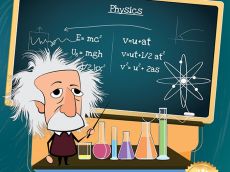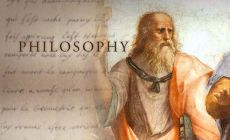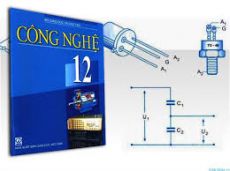Đề thi giữa HK1 môn Tiếng Anh 10 Cánh diều năm 2023-2024
Trường THPT Nguyễn Thị Minh Khai
-
Mark the letter A, B, C, or D on your answer sheet to indicate the word whose underlined part differs from the other three in pronunciation in each of the following questions.
Câu 1:
A. compete
B. intend
C. medal
D. defend
-
Câu 2:
A. extinction
B. exhibit
C. exhaustion
D. exist
-
Mark the letter A, B, C, or D to indicate the word that differs from the other three in the position of primary stress in each of the following questions
Câu 3:
A. hurricane
B. photograph
C. recommend
D. separate
-
Câu 4:
A. dangerous
B. computer
C. courageous
D. industrial
-
Mark the letter A, B, C, or D on your answer sheet to indicate the word(s) OPPOSITE in meaning to the underlined word(s) in each of the following questions.
Câu 5:
Tom was too wet behind the ears to be in charge of such a difficult task.
A. full of experience
B. lack of responsibility
C. without money
D. full of sincerity
-
Câu 6:
Lisa rarely smiles because she’s shy about exposing her crooked teeth.
A. pulling
B. hiding
C. showing
D. brushing
-
Mark the letter A, B, C, or D on your answer sheet to indicate the word(s) CLOSEST in meaning to the underlined word(s) in each of the following questions.
Câu 7:
I think Michael hit the nail on the head when he said that what is lacking in this company is the feeling of confidence.
A. interpreted something indirectly
B. described something unconsciously
C. said something correctly
D. misunderstood something seriously
-
Câu 8:
The most irritating people are those who always disturb others by asking really stupid questions.
A. annoying
B. exciting
C. cheerful
D. humorous
-
Mark the letter A,B,C or D on your answer sheet to indicate the sentences that best complete the exchange in the following questions.
Câu 9:
Mike is going to New York to study next week.
- Linda: “ ___________________ ”
- Mike: “Thanks. I will write to you when I come to New York.”A. Better luck next time!
B. Have a go!
C. God bless you!
D. Have a nice trip
-
Câu 10:
Tim: "Where will you go on holiday?”
- David " ___________________ "
A. The beach is nice, isn’t it?
B. Probably I won't think of.
C. Probably to the beach.
D. I have a four-day vacation.
-
Mark the letter A, B, C, or D on your answer sheet to indicate the correct answer to each of the following questions.
Câu 11:
They were extremely tired at the end of the journey because they __________ for more than 24 hours.
A. have travelled
B. have been travelling
C. had travelled
D. had been travelling
-
Câu 12:
The fireworks festival is ____________ event that we all want to watch it.
A. such wonderful an
B. so wonderful an
C. a very wonderful
D. a too wonderful
-
Câu 13:
Many tourists have decided to visit Ha Long Bay because of UNESCO’s _____ of its natural beauty.
A. accepting
B. protection
C. recognition
D. condition
-
Câu 14:
I’ve been ___________ with my friends for a couple of years.
A. out of reach
B. out of the condition
C. out of touch
D. out of the question
-
Câu 15:
I thought the party ___________________ really well.
A. came off
B. came up
C. came about
D. came across
-
Câu 16:
He denied ___________________ the window of the classroom.
A. to break
B. break
C. to breaking
D. breaking
-
Câu 17:
The government is aiming _______ a 40% reduction _________ unemployment.
A. to - of
B. at - in
C. on - in
D. for - of
-
Câu 18:
You should be a little more _________ if you want to attract their attention.
A. imaginative
B. imagine
C. imagination
D. imaginatively
-
Câu 19:
I didn’t ___________________ to see my aunt when I was in Paris.
A. take
B. make
C. get
D. meet
-
Câu 20:
The _________ of new technology transformed our lives.
A. interaction
B. advent
C. emergency
D. identity
-
Câu 21:
What does global warming have ___________________ overpopulation?
A. to do
B. to do with
C. made
D. made up
-
Câu 22:
I think I put my ___________________ in it when I asked Lisa about her ex-husband.
A. thought
B. elbow
C. foot
D. nose
-
Read the following passage and mark the letter A, B, C, or D on your answer sheet to indicate the correct word.
Can we see (23) _______ the earth is a globe? Yes, we can, when we watch a ship that sails out to sea. If we watch closely, we see that the ship begins (24) _______. The bottom of the ship disappears first, and then the ship seems to sink lower and lower, (25) _______we can only see the top of the ship, and then we see nothing at all. What is hiding the ship from us? It is the earth. Stick a pin most of the way into an orange, and (26) _______ turn the orange away.
Câu 23:
A. if
B. where
C. that
D. when
-
Câu 24:
A. being disappeared
B. to be disappeared
C. to have disappeared
D. to disappear
-
Câu 25:
A. until
B. since
C. after
D. by the time
-
Câu 26:
A. reluctantly
B. accidentally
C. slowly
D. passionately
-
Câu 27:
A. the same
B. alike
C. just as
D. similar to
-
Read the following passage and mark the letter A, B, C, or D on your answer sheet to indicate the correct answer to each of the questions from 28 to 34.
Because the low latitudes of the Earth, the areas near the equator, receive more heat than the latitudes near the poles, and because the nature of heat is to expand and move, heat is transported from the tropics to the middle and high latitudes. Some of this heat is moved by winds and some by ocean currents, and some gets stored in the atmosphere in the form of latent heat. The term “latent heat” refers to the energy that has to be used to convert liquid water to water vapor. We know that if we warm a pan of water on a stove, it will evaporate, or turn into vapor, faster than if it is allowed to sit at room temperature. We also know that if we hang wet clothes outside in the summertime, they will dry faster than in winter, when the temperature is lower. The energy used in both cases to change liquid water to water vapor is supplied by heat - supplied by the stove in the first case and by the Sun in the latter case. This energy is not lost. It is stored as vapor in the atmosphere as latent heat. Eventually, the water stored as vapor in the atmosphere will condense to liquid again, and the energy will be released to the atmosphere.
In the atmosphere, a large portion of the Sun’s incoming energy is used to evaporate water, primarily in the tropical oceans. Scientists have tried to quantify this proportion of the Sun’s energy. By analyzing temperature, water vapor, and wind data around the globe, they have estimated the quantity to be about 90 watts per square meter, or nearly 30 percent of the Sun’s energy. Once this latent heat is stored within the atmosphere, it can be transported, primarily to higher latitudes, by prevailing, large - scale winds. Or it can be transported vertically to higher levels in the atmosphere, where it forms clouds and subsequent storms, which then release the energy back to the atmosphere.
Câu 28:
The passage mainly discusses how heat ___________________
A. is transformed and transported in the Earth’s atmosphere.
B. is transported by ocean currents.
C. can be measured and analyzed by scientists.
D. moves about the Earth’s equator.
-
Câu 29:
The passage mentions that the tropics differ from the Earth’s polar regions in which of the following ways?
A. The height of cloud formation in the atmosphere.
B. The amount of heat they receive from the Sun.
C. The strength of their large scale winds.
D. The strength of their oceanic currents.
-
Câu 30:
The word “convert” is closest in meaning to ___________________ .
A. mix
B. change
C. adapt
D. reduce
-
Câu 31:
Why does the author mention “the stove” in the passage?
A. To describe the heat of the Sun.
B. To illustrate how water vapor is stored.
C. To show how energy is stored.
D. To give an example of a heat source
-
Câu 32:
According to the passage, most ocean water evaporation occurs especially _________ .
A. around the higher latitudes
B. in the tropics
C. because of large - scale winds
D. because of strong ocean currents
-
Câu 33:
According to the passage, 30 percent of the Sun’s incoming energy __________
A. is stored in clouds in the lower latitudes
B. is transported by ocean currents
C. never leaves the upper atmosphere
D. gets stored as latent heat
-
Câu 34:
The underlined word “it” refers to ___________________ .
A. square meter
B. the Sun’s energy
C. latent heat
D. the atmosphere
-
Read the following passage and mark the letter A, B, C, or D on your answer sheet to indicate the correct answer to each of the questions from 35 to 40.
Often the craft worker’s place of employment in ancient Greece was set in rural isolation. Potter, for instance, found it convenient to locate their workshops near their source of clay, regardless of its relation to the center of settlement, At Corinth and Athens, however, two of the best-known potters’ quarters were situated on the cities’ outskirts, and potters and makers of terra-cotta figurines were also established well within the city of Athens itself. The techniques of pottery manufacture had evolved well before the Greek period, but marked stylistic developments occurred in shape and in decoration, for example, in the interplay of black and other glazes with the red surface of the fired pot. Athenian black-figure and red-figure decoration, which emphasized human figures rather than animal images, was adopted between 630 and 530 B.C.; its distinctive color and luster were the result of the skillful adjustments of the kiln’s temperature during an extended three-stage period if firing the clayware. Whether it was the potters or the vase-painters who initiated changes in firing is unclear; the functions of making and decorating were usually divided between them, but neither group can have been so specialized that they did not share in the concerns of the other.
The broad utility of terra-cotta was such that workers in clay could generally afford to confine themselves to either decorated housewares like cooking pots and jars or building materials like roof tiles and drainpipes. Some sixth-and fifth-century B.C. Athenian pottery establishments are known to have concentrated on a limited range of fine ware, but a rural pottery establishment on the island of Tliasos produced many types of pottery and roof tiles too, presumably to meet local demand. Molds were used to create particular effects for some products, such as relief-decorated vessels and figurines; for other products such as roof tiles, which were needed in some quantity, they were used to facilitate mass production. There were also a number of poor-quality figurines and painted pots produced in quantity by easy, inexpensive means- as numerous featureless statuettes and unattractive cases testify.
Câu 35:
The passage mainly discusses ancient Greek pottery and its __________ .
A. production techniques
B. similarity to other crafts
C. unusual materials
D. resemblance to earlier pottery
-
Câu 36:
It can be inferred from the passage that most pottery establishments in ancient Greece were situated ___________ .
A. in city centers
B. on the outskirts of cities
C. where clay could be found
D. near other potters’ workshops
-
Câu 37:
The word “marked” in the first paragraph is closest in meaning to __________
A. original
B. attractive
C. noticeable
D. patterned
-
Câu 38:
The word “confine” in the second paragraph is closest in meaning to _________ .
A. adapt
B. train
C. restrict
D. organize
-
Câu 39:
It can be inferred from the passage that terra-cotta had which of the following advantages?
A. It did not break during the firing process.
B. It was less expensive than other available materials.
C. Its surface had a lasting shine.
D. It could be used for many purposes.
-
Câu 40:
The word “presumably” in the second paragraph is closest in meaning to ____________
A. frequently
B. practically
C. preferably
D. probably














